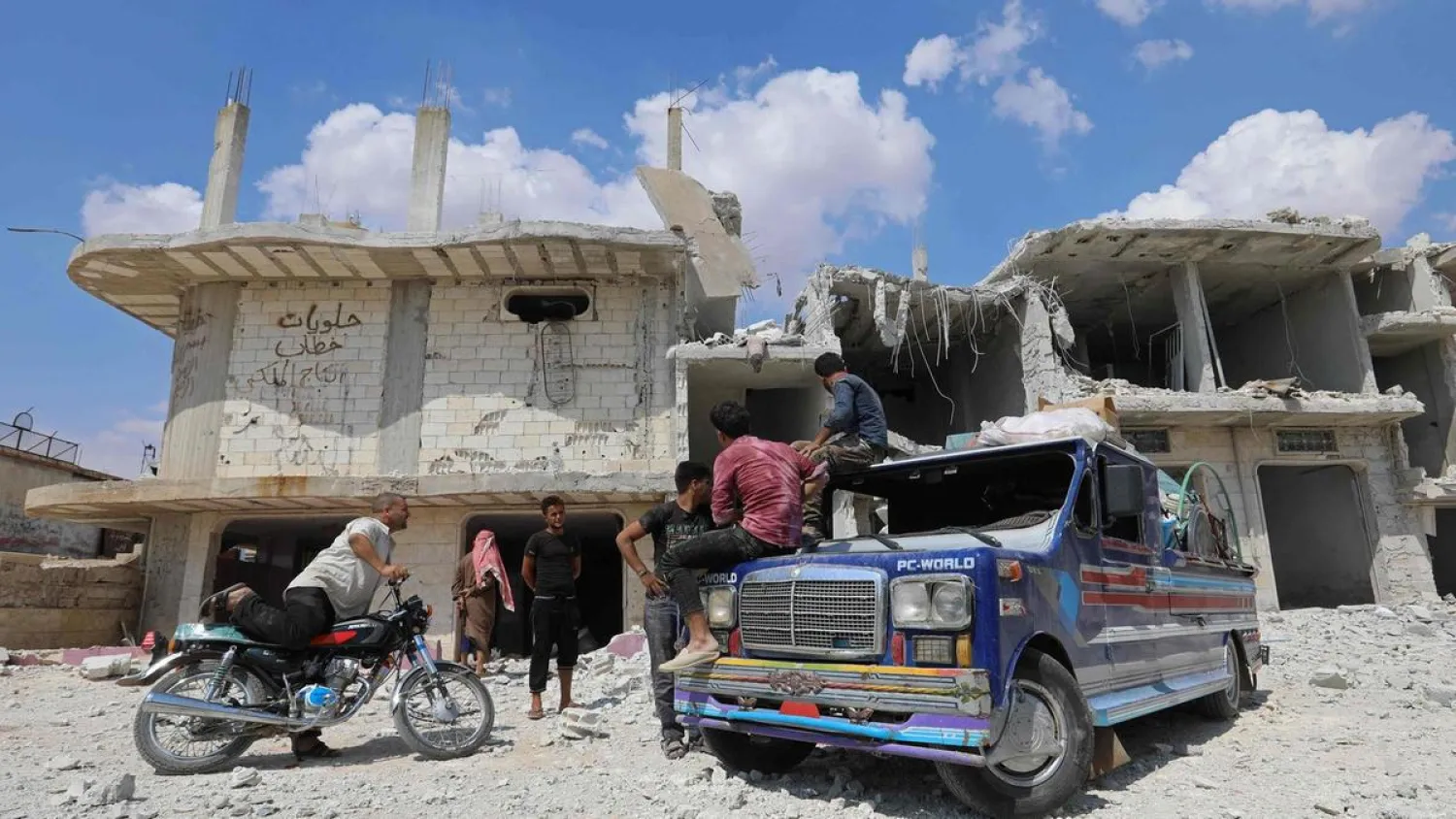Turkey was pushing Sunday for more military reinforcements as a convoy transporting tanks and howitzers was seen crossing into Syrian territories from the Kafrlosin crossing towards the Idlib province, according to local media reports.
The move came after Ankara sent additional members of its special forces to reinforce the 12 monitoring points it established in the de-escalation zones in the northwestern province.
“More than 30 military vehicles entered Syrian territory at dawn Sunday, where the column headed towards the Turkish point in Morek in the northern countryside of Hama,” the Syrian Observatory for Human Rights said.
Meanwhile, the Syrian regime and its ally Russia resumed on Sunday intensive airstrikes against main opposition positions in the countryside of northern Hama and the countryside of southern Idlib.
Sources from the Syrian opposition in the North revealed that the regime was mainly striking the rear base of lines defending the area as a sign that Damascus and Russia were preparing for a military operation to control the international highway.
Video footage shot by an amateur Sunday showed the aftermath of the airstrikes, while the Observatory confirmed that more than 400 families were already displaced from their homes in southern villages of Idlib’s countryside.
Residents and rescuers said Syrian regime helicopters dropped barrel bombs, typically filled with high explosives and shrapnel, on al-Habeet and Abdeen villages in southern Idlib and a string of other hamlets and villages in the area.
Damascus, backed by Russia and Iran, has been preparing a major assault to recover Idlib and adjacent areas of the northwest.
Local sources said Turkey entirely closed its borders and completed fortifying points established to prevent Syrians from entering its territories. Ankara fears it could face the largest displacement wave from Idlib, where more than 3 million people live.









